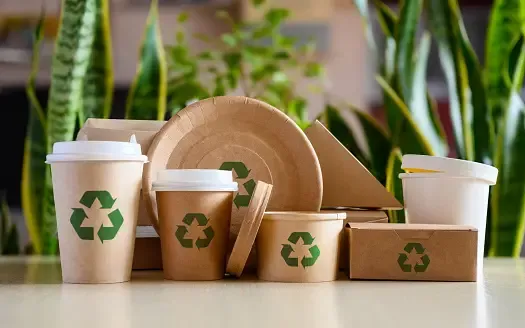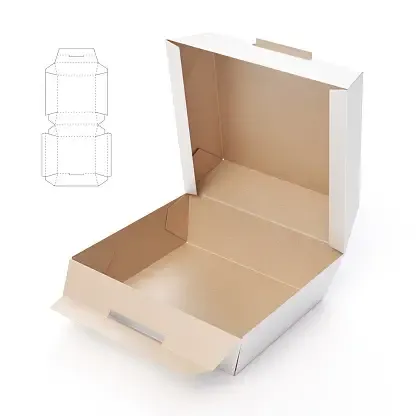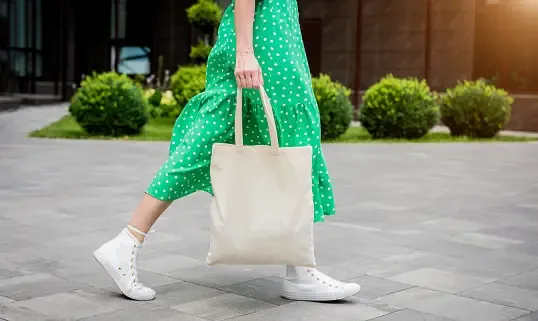
Get A Quote
How is Sustainable Packaging Redefining the Future of Product Packaging?
The significance of sustainable packaging cannot be overstated in our modern society. With growing concerns about climate change, pollution, and resource depletion, consumers are increasingly demanding eco-friendly alternatives to traditional packaging. Businesses are recognizing the need to adapt their practices to meet these demands, not only for ethical reasons but also to remain competitive in an evolving market.
In this blog, we'll delve into the world of sustainable packaging trends and their transformative impact on the future of product packaging. We'll explore key concepts such as biodegradable packaging, compostable packaging, and reusable packaging, shedding light on how these innovations are reshaping the packaging industry and contributing to a more sustainable future for all.
Biodegradable Packaging: Transforming Waste into Resources
Biodegradable packaging represents a significant shift away from traditional plastic packaging towards materials that naturally break down over time. These materials, which can include plant fibers and starch-based polymers, offer a promising solution to the problem of plastic waste that plagues our landfills and oceans.
The benefits of biodegradable packaging are manifold, with one of the most significant being its ability to reduce waste accumulation. Unlike traditional plastics that persist in the environment for hundreds of years, biodegradable materials degrade into organic matter when exposed to natural conditions. This not only minimizes the burden on landfills but also helps prevent pollution in our oceans and waterways.
Examples of materials commonly used in biodegradable packaging include plant-based plastics derived from sources such as corn or sugarcane, as well as natural fibers like hemp or bamboo. These materials offer comparable functionality to traditional plastics while mitigating the environmental impact of packaging production and disposal.
In addition to reducing waste, biodegradable packaging plays a crucial role in transitioning towards a circular economy.By returning packaging materials to the earth in the form of compostable matter, we can close the loop on resource consumption and waste generation, creating a more sustainable and regenerative system overall.
Compostable Packaging: Nurturing the Environment Through Decomposition
Compostable packaging represents a significant advancement in sustainable packaging solutions, offering a holistic approach to environmental stewardship. Unlike biodegradable packaging, which merely breaks down over time, compostable packaging actively enriches the soil during decomposition.
Compostable packaging shares similarities with biodegradable packaging but goes a step further in its environmental benefits. While both types of packaging break down naturally, compostable packaging undergoes a specific process that not only breaks down the material but also adds valuable nutrients to the soil.
The advantages of compostable packaging extend beyond waste reduction to soil enrichment. When compostable materials decompose, they release essential nutrients into the soil, promoting plant growth and enhancing soil fertility. This creates a closed-loop system wherein packaging materials serve a dual purpose: packaging products and nourishing the earth.
Materials commonly used in compostable packaging include vegetable starch, cellulose, and other organic compounds. These materials are carefully selected for their ability to decompose efficiently and contribute beneficial nutrients to the soil.
Compostable packaging plays a crucial role in promoting environmental regeneration by closing the loop on resource consumption. Instead of depleting finite resources and generating waste, compostable packaging returns valuable nutrients to the earth, fostering a more sustainable and regenerative ecosystem.
Reusable Packaging: Shifting Towards Sustainable Consumption Habits
Reusable packaging offers a tangible solution to the problem of single-use packaging, encouraging a shift towards more sustainable consumption habits. Unlike disposable packaging, which is discarded after a single use, reusable packaging can be used multiple times before disposal, reducing waste generation and resource consumption.
The concept of reusable packaging aligns with the principles of the circular economy, wherein materials are kept in use for as long as possible to maximize their value and minimize waste. Examples of reusable packaging options include glass jars, stainless steel containers, and cloth bags, all of which offer durability and longevity compared to single-use alternatives.
By opting for reusable packaging, consumers can significantly reduce their environmental footprint by minimizing waste generation and resource consumption. This not only conserves valuable resources but also reduces carbon emissions associated with the production and disposal of packaging materials.
In addition to environmental benefits, reusable packaging encourages a shift in consumer behavior towards sustainability. By choosing reusable options over disposable ones, consumers can actively participate in creating a more sustainable future for themselves and future generations.
Benefits of Sustainable Packaging Trends
Sustainable packaging trends offer a host of benefits that extend beyond environmental considerations, positively impacting businesses, consumers, and the planet as a whole.
Environmental benefits of adopting sustainable packaging practices
By adopting sustainable packaging practices, businesses can significantly reduce their environmental impact by minimizing waste generation, resource consumption, and carbon emissions. Sustainable packaging solutions prioritize the use of renewable materials and eco-friendly production processes, contributing to a healthier planet and a more sustainable future.
Reduction of carbon footprints through sustainable packaging solutions
Sustainable packaging solutions play a crucial role in reducing carbon footprints associated with the production and disposal of packaging materials. By utilizing renewable resources and implementing eco-friendly manufacturing processes, businesses can lower their carbon emissions and contribute to mitigating climate change.
Enhancement of brand reputation and consumer loyalty
Consumers are increasingly prioritizing sustainability when making purchasing decisions, making sustainable packaging a valuable tool for enhancing brand reputation and fostering consumer loyalty. By aligning with eco-friendly values and adopting sustainable packaging practices, businesses can attract environmentally conscious consumers and build trust and loyalty over time.
Preservation of natural resources by utilizing renewable materials
Sustainable packaging trends prioritize the use of renewable materials, such as plant-based plastics, recycled paper, and biodegradable polymers, reducing reliance on finite resources and minimizing environmental degradation. By utilizing renewable materials in packaging production, businesses can contribute to the preservation of natural resources and biodiversity.
Positive impact on the planet's health and sustainability
Overall, sustainable packaging trends have a positive impact on the planet's health and sustainability, fostering a more resilient and regenerative ecosystem. By embracing sustainable packaging practices, businesses and consumers alike can contribute to creating a greener and more environmentally friendly world for current and future generations.
Conclusion
Pink Store recognizes the crucial role of sustainable packaging in shaping the future of product packaging and is committed to making conscious choices that benefit both the planet and society. We adhere to the principles of Environmentally Friendly Materials, Minimal Waste and Efficient Design, Continuous Innovation and Research to meet the unique needs of every customer. Together, through sustainable packaging practices, we strive to create a brighter and more sustainable future.



